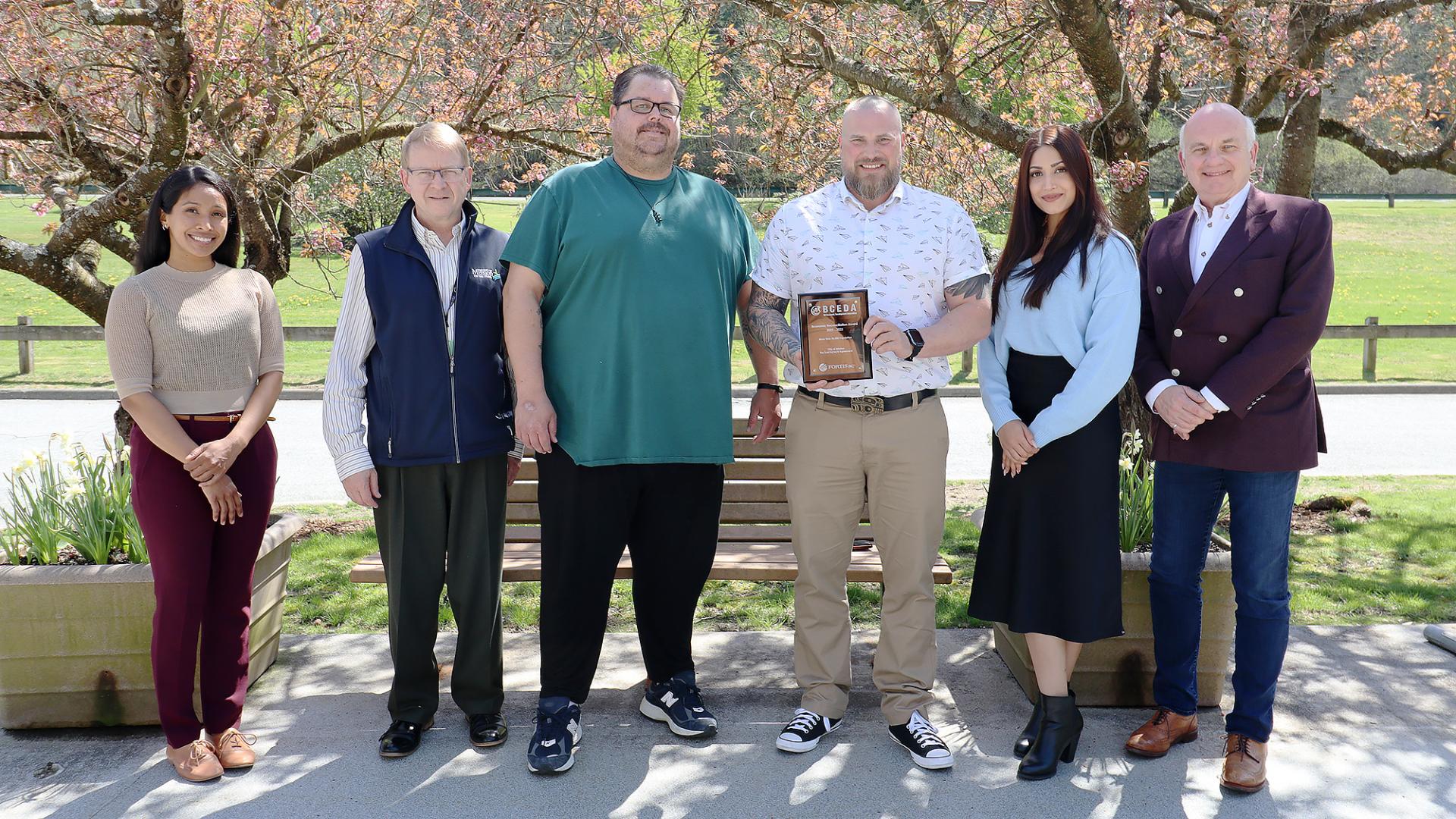Mission, BC—The City of Mission and the Leq'á:mel, Mathexwi, Semá:th (LMS) Society were recently recognized with an Economic Reconciliation Award for their collaborative work on the Í:xel Sq'eq'ó Agreement.
The British Columbia Economic Development Association and FortisBC present this award to exemplary partnerships, agreements, and activities that advance shared economic reconciliation work in communities larger than 20,000 residents.
"The LMS Society is thrilled to hear that the City of Mission has, through the development and continued implementation of the Í:xel Sq'eq'ó Agreement, earned the Economic Reconciliation Award,” said Leq'á:mel First Nation Councillor Darrel McKamey and LMS Director.
The Í:xel Sq'eq'ó Agreement, which translates to English as “Together We Paddle,” was the first agreement of its kind to bring First Nations, local and provincial governments together in a meaningful act of Reconciliation. This historic agreement was signed on July 21, 2021 by the City of Mission, the LMS Society, and the Province, and returns 60 hectares of traditional lands to Leq'á:mel, Mathexwi, Semá:th to establish new public parklands and commercial and residential developments.
“Our Nations have continuously pushed the concepts of collaboration with our neighboring communities,” said Mathexwi Councillor Stan Morgan and LMS Director. “We are grateful to have the City of Mission as a willing and active player in the advancement of Reconciliation efforts. As community leaders, it is our duty today to see that our past leaders' efforts are recognized. Fortunately, our communities have always strived for healthy meaningful relationships with our neighbors Indigenous and non-Indigenous alike.”
The LMS Society and the City of Mission will work collaboratively to develop a park management plan that will focus on maintaining the natural character of the area, protecting sensitive environmental elements, enhancing cultural and historic understanding, and guiding improvements over time.
“While in other communities, Reconciliations efforts have largely focused on cultural spaces and art, we recognize that Reconciliation should lead to a better quality of life for all in our shared territory,” said Mayor Paul Horn. “Partnering in economic opportunities such as the LMS land transfer will pay off for every member of our communities now and in the future. It’s exciting that communities across Canada are now looking to Mission as an example of tying together economic development and Reconciliation.”
The City of Mission adopted a set of principles [PDF/560KB] that guides its relationships with Indigenous peoples and commits to the revision and creation of policies to be consistent with UNDRIP and the TRC Calls to Action.
“The playing field has only begun to level,” said Councillor McKamey. “However there still is much more work to be done. LMS and Mission both recognize the strengths we each have to offer to all our citizens benefit which has opened the door to generations of success ahead, socially, and economically. We still have a long journey ahead if we want to get to a place of true equality. However, the small steps that have been taken thus far, give the leaders of today and future generations a path to follow.”
The City of Mission received the award on behalf of the communities at the BC Economic Summit, which took place at the end of April.
In the photo from right to left: Maya Duvage (legal), Mike Younie (City of Mission), Councillor Stan Morgan (Mathexwi First Nation), Councillor Darrel McKamey (Leq'á:mel First Nation), Philipa Dutt (Semá:th First Nation), and Richard Hall (Semá:th First Nation).

